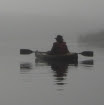Your world is good for me
and so I give you thanks
for soil and seasons, seeds and sun,
for water and wisdom and work to be done.
Your world is good for me
(Annie Gardenbed) -
Amen!
and so I give you thanks
for soil and seasons, seeds and sun,
for water and wisdom and work to be done.
Your world is good for me
(Annie Gardenbed) -
Amen!

This work by Laura Herman is licensed under a Creative Commons
Attribution-Noncommercial-Share Alike 2.5 Canada License.
Sorry about the Noncommercial break, but I wanted Disney's
legal hordes to know that I'm not trying to profit by this.
legal hordes to know that I'm not trying to profit by this.
Your world.
I don't say who "you" is, but there is no need. I am singing to one who is present, listening; why use a name? It would only drag us off into arguments about the connotations of the name, and then about which gender of pronoun we should use when the name is too burdensome to speak in its entirety.
Isn't it rude to argue about someone when they are present?
Your world is good for me.
It is a whole world, and it is larger than my doubts and fears about what may be done to me specifically. It is a good place in which to choose my way.
I give you thanks . . .
and in so doing, I open my own eyes, and my whole being, to the wonder, blessings, and possibilities that are all around me, always, whether I remember to give thanks or not.
Soil.
Do I own it? Because I can surround it with survey stakes, do I really own the soil? If I turn and tear it with the movement of steel, driven by combustion commanded by cash, do I forget? It is much more ancient than I and my title. It is more fluid and changing than the lines on the deed. It anchors the roots of life, records the traces of centuries, and yet whole decades of its building can be swept away, to a new place and people, in a few windstorms or a single flood.
Is soil, all too often, taken as a given instead of as a gift?
Seasons.
Dave Sauchyn of Regina, trying to create the few bullet points asked of him to somehow sum up a 448-page report on the impacts of climate change in Canada, said this:
Canada is losing the competitive advantage of a cold winter.
Seeds, sun, and water . . .
the things we often remember in our thanks.
There is so much more.
Wisdom.
If you find a little here, I am thankful.
Work to be done!
In our modern world we only deem something a success if we can stand back idle and watch it work. If any physical effort is required, it is an outright failure. . . . The very first thing we do when seeing something so elegantly simple and useful as this pump is scheme to make it work while we just stand by and stare at it.
There is a pitfall in being thankful for things given to us. The story of Johnny Appleseed is inspiring, but the popular version, as summed up in the merry little verse, drifts toward a "big-rock-candy-mountain" vision of idyllic idleness achieved at last, as a result of someone else's generous hard work. That vision entices, seduces, and robs us of the wonderful gifts of our own work: tending; bringing forth; growing strong; growing wise; being present; finding meaning.
Through work we receive the ability to give.
Your world is good for me!
Amen.
Amen.




